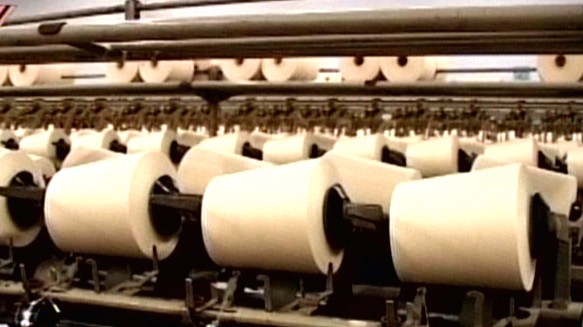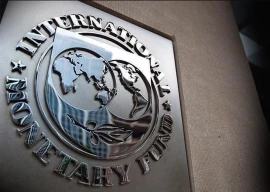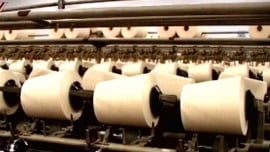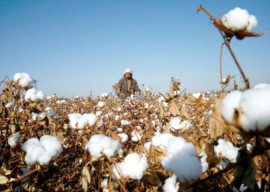
Businessmen in the textile sector have lamented that low value-added cotton yarn exports rose nearly 36% in February while cotton, cotton yarn and gas remained scarce for the country’s industry.
In a statement on Wednesday, Pakistan Apparel Forum Chairman Muhammad Jawed Bilwani stated that cotton yarn exports rose to 44,419 tons in February 2021 compared to 32,694 tons in January.
He pointed out that the increase in yarn exports came at the cost of domestic industry, which kept suffering due to shortage of cotton yarn.
“Spinners are exporting cotton and gas in the shape of cotton yarn, which is in deficit in Pakistan,” he said. “These essential raw materials and resources could be converted into high value-added products such as garments whose export will earn higher foreign exchange and generate more employment.”
Citing data of the Pakistan Bureau of Statistics, he said that export of value-added knitwear, bed wear and readymade garments showed month-on-month declines of 26.14%, 7.35% and 0.42% respectively in February 2021.
To immediately control the declining trend in the wake of severe shortage of cotton yarn, the government should immediately ban its export and abolish the 5% customs duty on its import.
“Government should also allow import of yarn from all over the world including India at least for the next four months to stabilise and sustain the export of value-added products in a bid to earn foreign exchange for the country,” he said. Highlighting that prices of cotton yarn had soared 40%, Bilwani regretted that the commodity was not available in the market even at the exorbitant price.
“The situation has compelled exporters not to take any new orders,” he said. “As a result of yarn shortage, export orders meant for Pakistan will divert to regional countries.”
In addition, the US dollar has weakened 7% against Pakistani rupee, which is a matter of concern for the exporters as it has triggered liquidity crunch.
Bilwani stressed that the value-added garment and home textile exporters were encountering problems and urged the government to support and facilitate them on a war footing.
Value-added textile exports contribute nearly 62% to total exports, provide 42% of urban employment, earns the highest foreign exchange and supports approximately 40 allied industries.
Published in The Express Tribune, March 18th, 2021.
Like Business on Facebook, follow @TribuneBiz on Twitter to stay informed and join in the conversation.


1725967717-0/Untitled-design-(3)1725967717-0-165x106.webp)

1725275251-0/Untitled-design-(3)1725275251-0-165x106.webp)















COMMENTS
Comments are moderated and generally will be posted if they are on-topic and not abusive.
For more information, please see our Comments FAQ